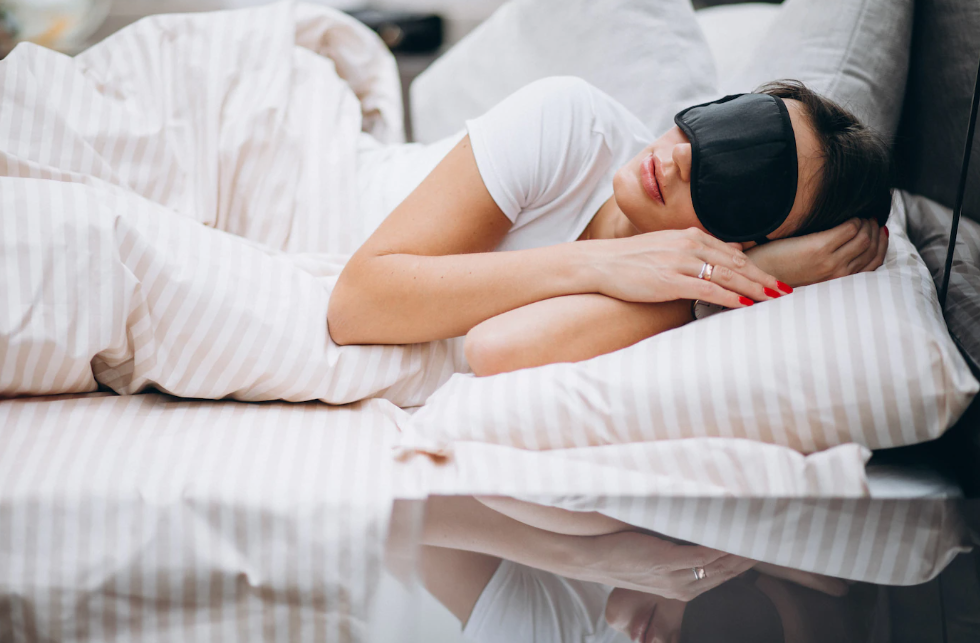Self Care Tips For Mental Health
Learn how self-care techniques for mental health can benefit your general well-being.

Selfpause Affirmation App
Download the app to get 1,000’s of affirmation meditations and everything you need to write, record and listen to your own.
Getting social may not be on your to do list, but it can be good for your mental health and overall well being. Spending time with friends and family is a great way to bond over common interests. Spending time together can also be a great way to learn more about yourself and to learn more about others.
In addition to increasing your social network, getting more involved in your community can also help your overall health. Participating in local groups can boost your self-confidence, reduce your stress and improve your overall mental health. Having a friend to help you through a tough time can also improve your overall health.
Having a friend who knows you can also help you to get better sleep, improve your mood and increase your immune system. Some studies show that having a friend to share the joys of life with can lower the risk of Alzheimer’s disease, dementia and other degenerative diseases.
Having a supportive network of friends, family and acquaintances is a great way to boost your social life. Studies have shown that people with a strong network of friends live longer than people who have no one to turn to. Having a network of friends can also help encourage sick people to visit their doctors.
Spending time with friends is also a good way to have fun. Some people like to do things for their friends. Taking a trip to the movies, going to a local bar or club or getting together with a group of friends is a great way to spend quality time.
It is also important to set healthy boundaries when it comes to socializing. Spending too much time with friends can be unhealthy.
Getting enough sleep

Getting enough sleep is essential for healthy mental function. A consistent sleep-wake cycle resets the body’s natural rhythm and recharges the brain. Lack of sleep can affect mental function, leading to a lowered ability to concentrate and recall information. It can also affect memory, mood, and emotional stability.
A study of 2233 adults from thirteen countries suggests that inadequate sleep is a risk factor for mental distress. A logistic regression analysis was used to assess the association between sleep and mental distress. The results showed that insomnia and hypersomnia were significantly associated with frequent mental distress.
In addition, the study found that the severity of the relationship between sleep and mental distress varies among different disorders. The highest-risk group were non-Hispanic Black people. The study was conducted in a cross-sectional design. The mean hours of sleep per 24-hour period were similar across age groups. The results showed that people who sleep less than six hours per night for seven days will have accumulated a full night’s sleep debt.
In addition to poor mental health, people who don’t get enough sleep are more likely to make mistakes and experience poor performance at work. Lack of sleep also increases the risk of injury. Sleep deprivation may also negatively affect depressive symptoms.
There is a growing body of research suggesting that sleep problems contribute to the onset and/or progression of mental health disorders. This includes depression, anxiety, and other psychiatric conditions.
If you have sleep problems, talk to your doctor. If you have symptoms of insomnia or sleep apnea, you may need to see a sleep specialist.
One in three adults in the United States experiences difficulty sleeping at least once a week. This number is higher for people with depression and anxiety. The link between sleep and mental health is stronger than ever.
Connecting with family

Having a strong family connection is not only beneficial to your mental health, but to your family’s health as a whole. Having strong bonds can help you make it through a tough breakup, deal with the kid’s behavior problems, and get your kids to eat their vegetables. Likewise, having a strong family connection can help you get the mental health treatments you need and deserve.
There are several ways to achieve a better mental health, including a family dinner, a walk around the block, and a night out on the town. While these methods may not be as fun as spending time with your kids, they can be just the thing to make you feel better about yourself and the world at large. Having a strong family is also an important component of a healthy and happy lifestyle.
A family meal is not only an opportunity to get together, but also a chance to talk about what’s going on in each member’s lives. It’s also a great opportunity to share a meal and your culinary escapades. You’ll have plenty of stories to tell and memories to cherish for years to come. This is a fun way to strengthen bonds and create some good ole’ fashion family memories.
Having a few family members with mental health challenges can be a lonely proposition. Luckily, there are services available in your community to help you get the support you need and deserve. To find the best one for you, call the Christian Counselors Network or visit the website to learn more. They are also happy to answer any questions you may have and can connect you with resources in your area.
Being creative

Using creativity as part of your self care routine can be a great way to improve your mental health. Studies have shown that creative activity can help reduce depression, stress, and anxiety. There are even some health benefits associated with being creative, including improved brain function and a lower risk of Alzheimer’s.
When you do something creative, you are using parts of your brain that are normally used for focusing on the task at hand. Creative action also requires you to remember small details and pieces of information. This exercise of the brain is an excellent way to build new neural pathways.
Creative endeavors also decrease stress and loneliness. The process of making something also improves self-awareness and can be a great outlet for your emotions. The creative process may also help you find a deeper meaning in life.
Creative activities can be fun and meditative. Some examples include making a breakfast, learning a new song, or embellishing shoes. These activities help flatten the blood sugar roller coaster. They also reduce the risk of heart disease and high blood pressure.
While being creative isn’t the only way to improve your mental health, it is an important one. Creative activities are similar to mindfulness activities, but they also have health benefits.
Some of the most exciting findings from recent research show that being creative can help people cope with stressful thoughts. In addition to lowering stress, creative activities can also be a natural antidepressant.
Developing a creative practice can be a simple process. There are many ways to do this, including painting, making music, and writing. Creative activity should not be a replacement for therapy. However, it is a great supplement to therapy on multiple levels.
Talking to a health care provider

Whether you are dealing with depression or anxiety, talking to a health care provider can help you to feel better. However, some people are afraid to talk to a doctor about their mental health. This is understandable. It can be a very personal issue. It is important to recognize that your health care provider is there for you, but they cannot reveal your condition or your details without your permission.
You need to be honest and open about your concerns. This will help build trust and lessen any embarrassment. You should also share your symptoms and your current treatment plan with your health care provider. You should also ask for a second opinion. A second opinion can give you a different treatment plan.
You should also prepare questions ahead of time. This will help you to ask the right questions. You can write down your questions and use a worksheet to prepare for your appointment. You may also use charts, journals, or apps to track your progress.
You should also let your health care provider know about your family’s mental health history. This will help them to identify early warning signs and recommend actions to reduce your risk.
If your health care provider believes that you are suffering from a mental illness, they can refer you to a mental health specialist. If you have been dealing with depression or anxiety for a long time, it is important to seek help. Your health care provider will work with you to develop a treatment plan that will help you to feel better.
Your primary care provider can also help you with your treatment plan. Your doctor will ask you about your symptoms and how they are impacting your daily life. You may also want to discuss the way that your mental illness affects your relationships.
Our Top FAQ's
Some effective ways to practice self-care for mental health include:
- Taking breaks and making time for relaxation and leisure activities
- Exercising regularly and maintaining a healthy diet
- Getting enough sleep and establishing a consistent sleep routine
- Setting boundaries and learning to say no to unreasonable demands
- Seeking support from friends, family, or a mental health professional
- Engaging in activities that bring joy and purpose, such as hobbies or volunteering
- Practicing mindfulness or relaxation techniques, such as meditation or deep breathing
To incorporate self-care habits into your daily routine, you can try setting aside specific times for self-care activities and making them a priority. You can also try finding ways to integrate self-care into your existing routines, such as taking a walk during your lunch break or doing some stretching before bed. It can also be helpful to set small, achievable goals and build on them over time.
Some self-care activities that can improve mental health and well-being include:
- Exercise, such as walking, running, or yoga
- Outdoor activities, such as hiking or gardening
- Creative activities, such as painting or writing
- Practicing mindfulness or meditation
- Getting a massage or engaging in other relaxation techniques
- Taking a warm bath or shower
- Reading a book or watching a movie
It’s important to practice self-care in a healthy and balanced way to avoid overdoing it or neglecting other important areas of your life. One way to check in with yourself is to pay attention to your physical and emotional well-being. If you are feeling energized and balanced, you are probably on the right track. If you are feeling burnt out or overwhelmed, it might be a good idea to reassess your self-care routine and make some adjustments.
Some self-care practices may be particularly beneficial for specific mental health conditions. For example, exercise and outdoor activities can be helpful for reducing stress and improving mood in people with depression or anxiety. Engaging in creative activities or practicing mindfulness may be helpful for managing symptoms of trauma or PTSD. It’s always a good idea to talk to a mental health professional if you are looking for self-care strategies that are tailored to your specific needs and concerns.
